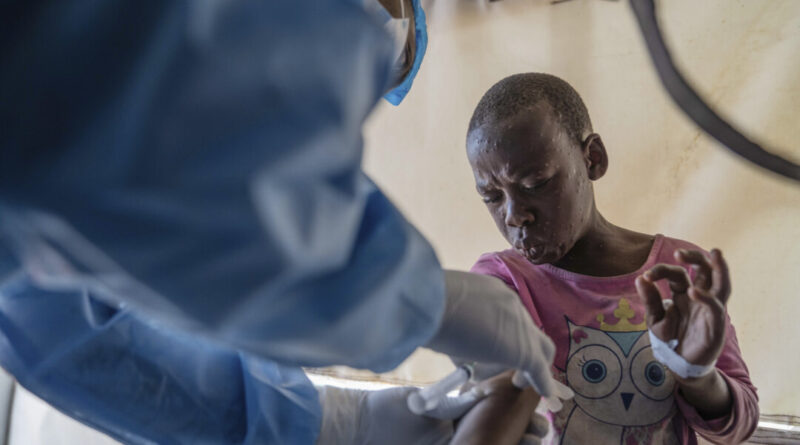Congo Launches Mpox Vaccination Campaign for Vulnerable Populations
The country will prioritize health workers, people who have been in contact with the infected, and those with compromised immune systems.
The Democratic Republic of Congo (DRC), the nation hardest hit by mpox in Africa, has begun a vaccination campaign to contain the outbreak.
The MVA-BN vaccine will be used to inoculate adults such as frontline health workers, people who have been in contact with the infected, and those with compromised immune systems. The vaccine requires two shots one month apart for full protection.
The decision to restrict vaccination to these groups was taken since the number of doses available for administration is limited, UNICEF said. The shots are being shipped to six provinces.
From January to September, the DRC reported more than 30,000 suspected mpox infections and 900 deaths.
Children younger than 15 years old are the most affected by the outbreak, making up around 60 percent of infections and 80 percent of deaths, UNICEF said.
“The DRC is expecting a delivery of 3 million doses of the LC-16 vaccine which has the potential to protect children against mpox,” said UNICEF DRC Representative Grant Leaity.
“The LC-16 vaccine requires only one shot to provide protection. As this outbreak is affecting children in particular, we’re looking forward to exploring options for vaccines which will protect children from illness, pain and discomfort, and even death.”
Leaity called the vaccination campaign a “welcome development.”
“Vaccines are just one tool at our disposal,“ Leaity said. ”Equally important for reducing the spread of the disease is providing people with the correct information on symptoms and what to do if they fall ill, and taking measures in health structures and schools for infection prevention and control.”
Vaccines were donated by the United States, the European Union, the Gavi Vaccine Alliance, and Africa CDC. UNICEF organized the shipment, customs clearance, and delivery of the shots to the DRC, as well as storage and transportation to the six provinces.
Public Health Emergency
The WHO designated the current mpox outbreak as a public health emergency of international concern (PHEIC) in August 2024.
Earlier, in July 2022, a multinational mpox outbreak triggered a PHEIC declaration, which ended in May 2023 after a sustained decline in global cases. The outbreak was caused by the clade 2 variant of mpox.
“The emergence of a new clade of mpox, its rapid spread in eastern DRC, and the reporting of cases in several neighboring countries are very worrying,” WHO Director-General Dr. Tedros Adhanom Ghebreyesus said while announcing the PHEIC.
How It Spreads
“Mpox spreads through close or intimate contact with a person with mpox,” the CDC says. “This could mean living in close quarters, or it may mean through sexual contact with a person with mpox. It may also spread by direct contact with contaminated items and surfaces used by people with mpox.
“In areas that regularly have mpox cases in Western and Central Africa, people can also get mpox from contact with infected wild animals. The disease is not known to spread in settings where only respiratory spread is possible—for example, across rooms, in markets or classrooms, etc.”
As to whether children are more susceptible to mpox, CDC pointed out that “the high number of children with mpox reported in the current DRC outbreak likely reflects spread within and between close households. Numerous factors probably contribute to this, including crowded households and lack of information about how mpox can spread.”
The agency says it is not expecting “a similar age-related risk if mpox were introduced in the United States for several reasons, including different household makeup and size, capacity for cleaning, and improved access to medical care and information about caring for patients.”





